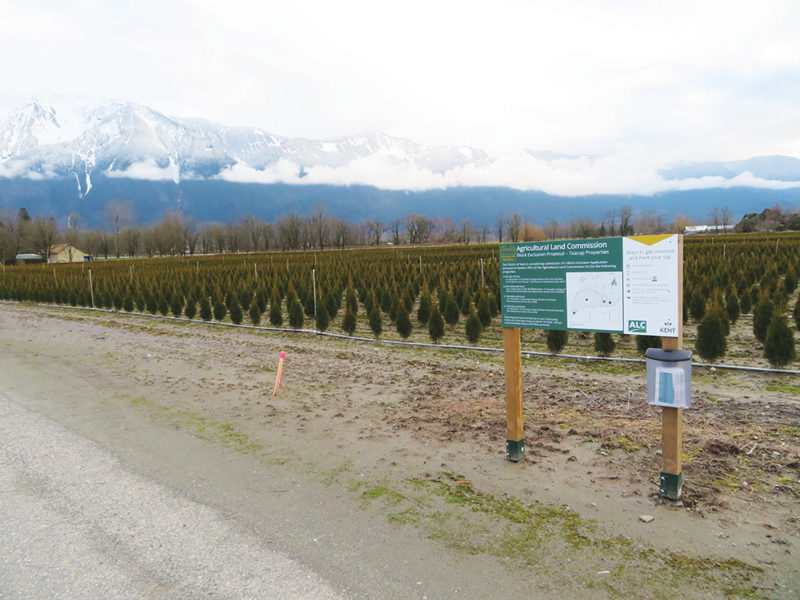BURNABY – Changes to how the Agricultural Land Commission does business at the end of this month are raising questions about what the future holds.
This summer has seen at least two municipalities move forward with exclusion applications in advance of new rules that take effect September 30. In the six weeks ended August 19, the ALC received four exclusion applications versus three in the same period a year earlier. These included bids by Kelowna to exclude 40 acres for a transit centre and the District of Kent’s request for 43 acres designated for residential development.
The increase in applications may not be dramatic, but both come ahead of changes that make local and First Nation governments the sole entities able to seek exclusions from the ALR.
The rules also require municipalities to hold public hearings prior to seeking exclusions, something not currently required.
This concerns Jim Grieshaber-Otto of Cedar Isle Farm in Agassiz, who feels the District of Kent’s public engagement process was not in the spirit of the new regulation. Public feedback was being sought when the COVID-19 pandemic hit. Approximately 55% of district residents opposed the district’s plans but it voted in July to pursue the block exclusion without a public hearing after the initial information session.
“The district seems to have rushed to submit its application before the new, more restrictive rules apply,” Grieshaber-Otto contends in a submission to the ALC.
ALC CEO Kim Grout says there has been no rush to file applications in advance of the rules changing, either from municipalities or from individual landowners.
While the exclusion applications filed this summer make up 10% of the 38 applications the ALC received in the period, total applications in the period were down from 59 a year ago.
“It is possible we will see an upswing in applications but it is not showing yet in the data,” Grout says.
Centralized
Bill 15 also did away with the system of regional panels, centralizing decision-making. While regional representation is being maintained, new regulations aim to make decision-making faster and more efficient. All existing commissioners remained in place under the new structure, announced March 12. However, the chair of the ALC will now have greater input on government’s appointment of new commissioners. This has many observers anxiously watching what happens when the terms of 11 land commissioners expire in October.
There are 15 land commissioners besides the chair, meaning the next round of appointments will define the character of the commission as it adjusts to governance changes made under Bill 15.
District A Farmers Institute questions whether the new process is sufficiently free of political interference, however. It notes that the province’s agriculture minister has the final say over appointments, even though the ALC operates independently of government.
While the lieutenant governor in council must appoint the chair, the Agricultural Land Commission Act specifies that “the minister must appoint the other members after consulting with the chair.”
“[How] does not increase, rather than decrease, political interference (an issue the minister has stated she is concerned about)?” asks Janet Thony, president of District A Farmers Institute.
According to the ALC, all candidates for appointment to the commission must present themselves through the Crown Agency and Board Resourcing Office.
“The way things have been working since the legislation changed is CABRO sends the ALC any resumes/CVs they receive that appear to fit with the knowledge requirements in the legislation, and the chair of the ALC (and/or commissioners the chair appoints) interviews candidates and based on those interviews makes recommendations back to CABRO,” explains Grout, noting that CABRO then liaises with the province’s agriculture minister, who makes the final decision.


 Sheep producers told to bear with wildlife
Sheep producers told to bear with wildlife